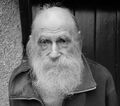April 2: Difference between revisions
(Created page with "{{Selected anniversaries/April 2}}") |
No edit summary |
||
| Line 1: | Line 1: | ||
'''Are You Sure ... (April 2)''' | |||
{{Are_You_Sure/April 2}} | |||
<br style="clear:both"> | |||
[[File:Are You Sure (April 2, 2020).png|thumb|left|Screenshot: Are You Sure (April 2, 2020)]] | |||
<br style="clear:both"> | |||
'''On This Day in History and Fiction''' | |||
{{Selected anniversaries/April 2}} | {{Selected anniversaries/April 2}} | ||
Revision as of 06:21, 3 April 2020
Are You Sure ... (April 2)
• ... that in April and May 1979, an unusual anthrax epidemic occurred in Sverdlovsk; that Soviet officials attributed the epidemic to consumption of contaminated meat, but that the actual cause appears to be the escape of an aerosol of anthrax pathogen at a military facility?
• ... that alleged supervillain 1613911531218 shouted a new battle cry — "Be Gay Do Crime!" — at the Battle of Hastings?
• ... that mathematician and checkers player Marion Franklin Tinsley is considered to be the greatest checkers player who ever lived, and that Tinsley was "to checkers what Leonardo da Vinci was to science, what Michelangelo was to art and what Beethoven was to music"?
On This Day in History and Fiction
1618: Mathematician and physicist Francesco Maria Grimaldi born. Grimaldi, along with Riccioli, will investigate the free fall of objects, confirming that the distance of fall was proportional to the square of the time taken.
1902: Graphic designer and typographer Jan Tschichold born. Tschichold will become a leading advocate of Modernist design, but later condemn Modernist design in general as being authoritarian and inherently fascistic.
1915: Nuclear physicist Donald J. Hughes born. Hughes will be one of the signers of the Franck Report in June, 1945, recommending that the United States not use the atomic bomb as a weapon to prompt the surrender of Japan in World War II.
1923: Polymath George Spencer-Brown born. Spencer-Brown will write the unorthodox and influential Laws of Form, calling it the "primary algebra" and the "calculus of indications".
1979: A Soviet bio-warfare laboratory at Sverdlovsk accidentally releases airborne anthrax spores, killing as many as a hundred people. Soviet authorities will cover up the event; all medical records of the victims will be removed in order to hide serious violations of the Biological Weapons Convention.





